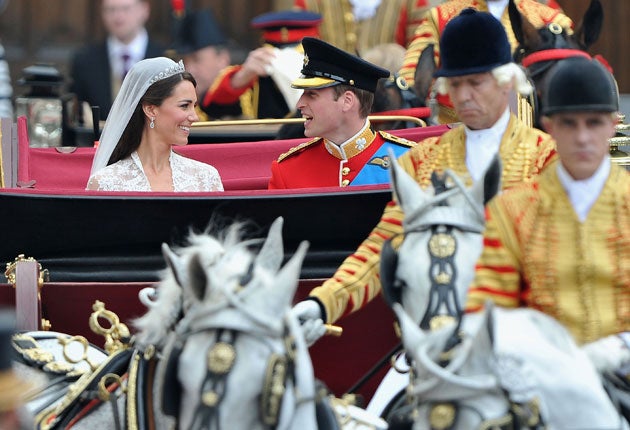'Special factors' blamed for slow growth

Your support helps us to tell the story
From reproductive rights to climate change to Big Tech, The Independent is on the ground when the story is developing. Whether it's investigating the financials of Elon Musk's pro-Trump PAC or producing our latest documentary, 'The A Word', which shines a light on the American women fighting for reproductive rights, we know how important it is to parse out the facts from the messaging.
At such a critical moment in US history, we need reporters on the ground. Your donation allows us to keep sending journalists to speak to both sides of the story.
The Independent is trusted by Americans across the entire political spectrum. And unlike many other quality news outlets, we choose not to lock Americans out of our reporting and analysis with paywalls. We believe quality journalism should be available to everyone, paid for by those who can afford it.
Your support makes all the difference.Britain's economy slowed between April and June after new figures today showed the UK grew by 0.2% in the quarter.
The figure is lower than the 0.5% seen in the first quarter, but the Office for National Statistics (ONS) said the figures this time were heavily influenced by one-off factors such as the royal wedding, Olympic ticket sales, record warm weather in April and the Japanese tsunami.
The ONS estimated the impact of these effects knocked as much as 0.5% off the GDP figure, which otherwise may have shown growth of 0.7%.
The performance will offer some relief to Chancellor George Osborne, who has come under pressure to amend his deficit reduction strategy amid concerns that a sluggish economy could affect tax revenues targets.
The Government's tax and spending watchdog had projected 0.4% for the second quarter, but many City economists reduced their GDP forecasts recently because of mixed manufacturing, services and construction figures.
Production output dropped by 1.4% in the three months but this was offset by a good performance in the powerhouse services sector, where output rose by 0.5%, and in construction where output rose by 0.5%.
Manufacturing declined by 0.3% quarter on quarter, a performance put down to the impact of the Japanese tsunami on supply chains. The warm weather also had an impact on gas and electricity demand.
Year on year the UK economy grew by 0.7%, which was the lowest rate of growth since the first quarter of 2010.
The Chancellor has faced calls recently to reverse the VAT increase which took effect in June, but said yesterday that low interest rates and the UK's credit status had justified his tough stance on the deficit.
Mr Osborne said today: "The positive news is that the British economy is continuing to grow and is creating jobs.
"And it is positive news too at a time of real international instability we are a safe haven in the storm.
"Our economy is stable at this time because this Government has taken the difficult decisions to get to grips with Britain's debts. Abandoning that now, as some argue we should, would only risk British jobs and growth."
The pound strengthened against the dollar following the update, breaking 1.64 US dollars for the first time since the middle of last month.
Howard Archer, chief UK economist at IHS Global Insight, said: "The GDP report is weak but not as bad as it could have been.
"While the worst fears were not realised, growth of just 0.2% in the second quarter after flat activity in the previous two quarters combined is hardly a performance to celebrate."
Business Secretary Vince Cable said: "I am not disappointed. We have had growth. It's not spectacular, but I am not surprised by that, when you see where we have come from.
"We are still living with the aftershocks of the banking crisis and the recession, living standards have clearly been squeezed by imported commodity prices, but we are getting growth and, more important, if you look at the trends over the last year, it is clear that we are now getting the building blocks for a more balanced and sustainable form of growth with business investment, exports and manufacturing."
Mr Cable dismissed Labour's claim that the Government needed 0.8% growth today to remain on track as "simply factually wrong".
And he rejected Labour's call for a plan B, saying: "The Government has made it very clear that we have got a very determined plan which we are sticking to to eliminate the structural deficit over the period of the parliament.
"There is no need for a plan B. We have to stick to the deficit reduction commitments."
Any additional stimulus to the economy would have to come through monetary policy, he said.
Shadow chancellor Ed Balls said last year's recovery had been "recklessly choked off" by Mr Osborne, and he urged the Chancellor to jump-start the economy by temporarily reversing January's VAT rise.
"At a time of global uncertainty, George Osborne's rash decision to hike up VAT in January and cut further and faster than any other major economy has caused confidence to fall and the economy to flatline since the autumn," he said.
"He ripped up the foundations of the house as the global economic hurricane was brewing - undermining our recovery well before the recent problems in the eurozone and America and leaving us dangerously exposed if things now go wrong there.
"Instead of clutching at excuses like too much snow in winter and too much sun in the spring, George Osborne needs to realise he only has himself to blame for the choices he made a year ago."
PA
Join our commenting forum
Join thought-provoking conversations, follow other Independent readers and see their replies
Comments